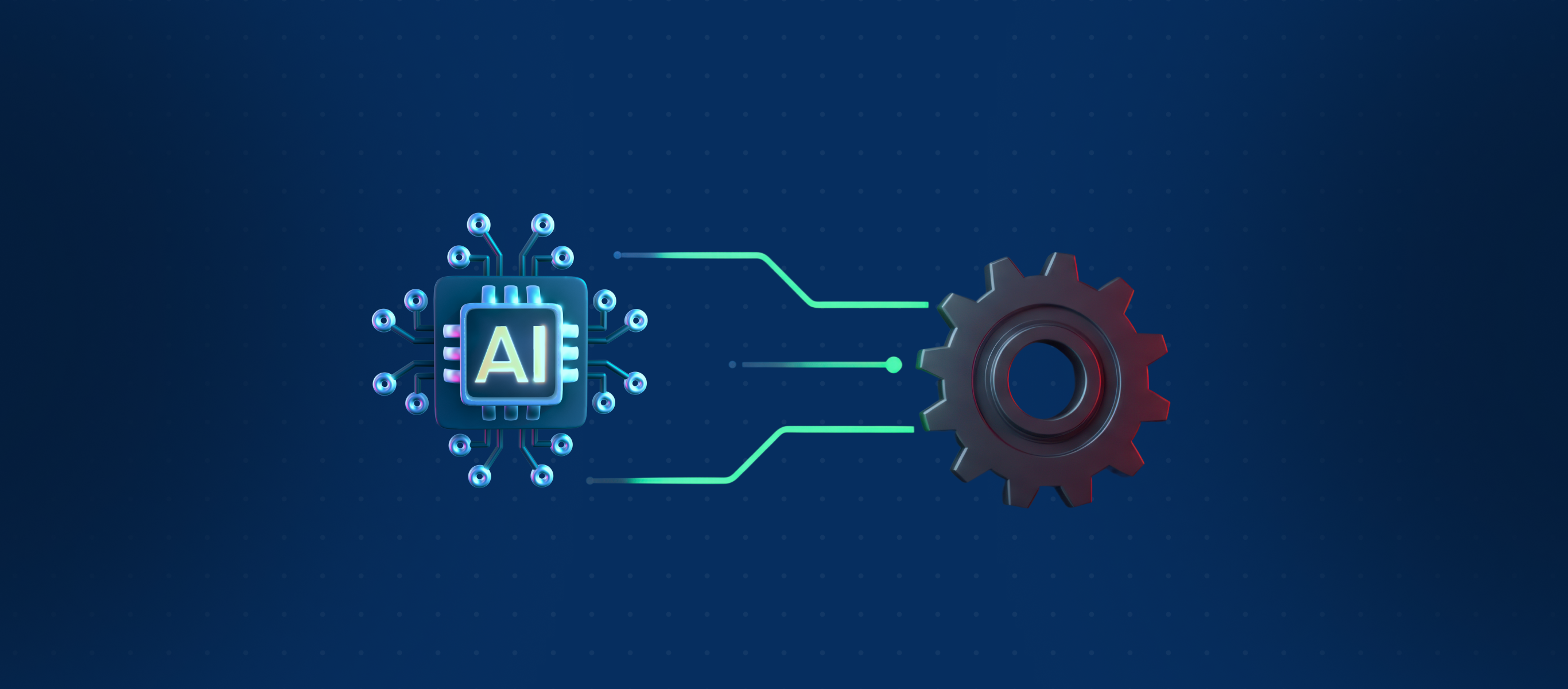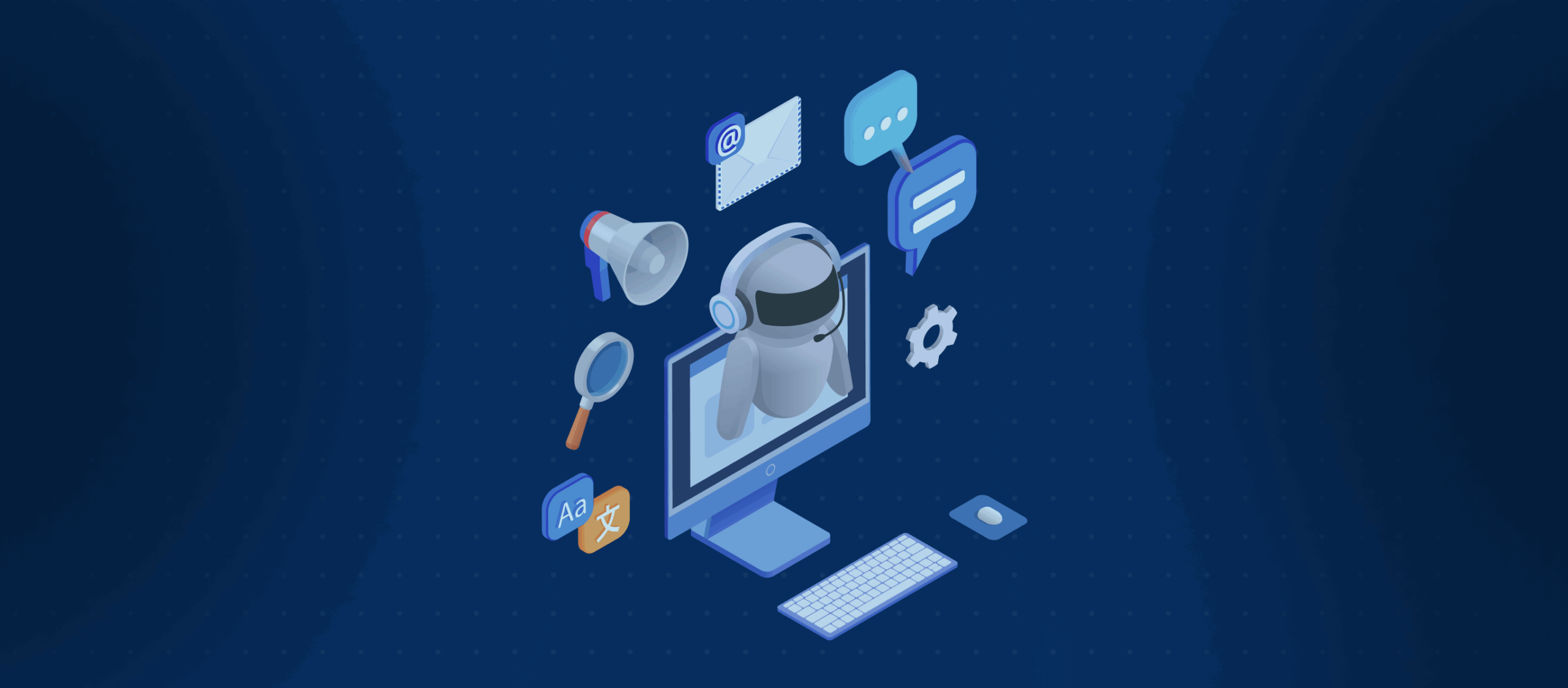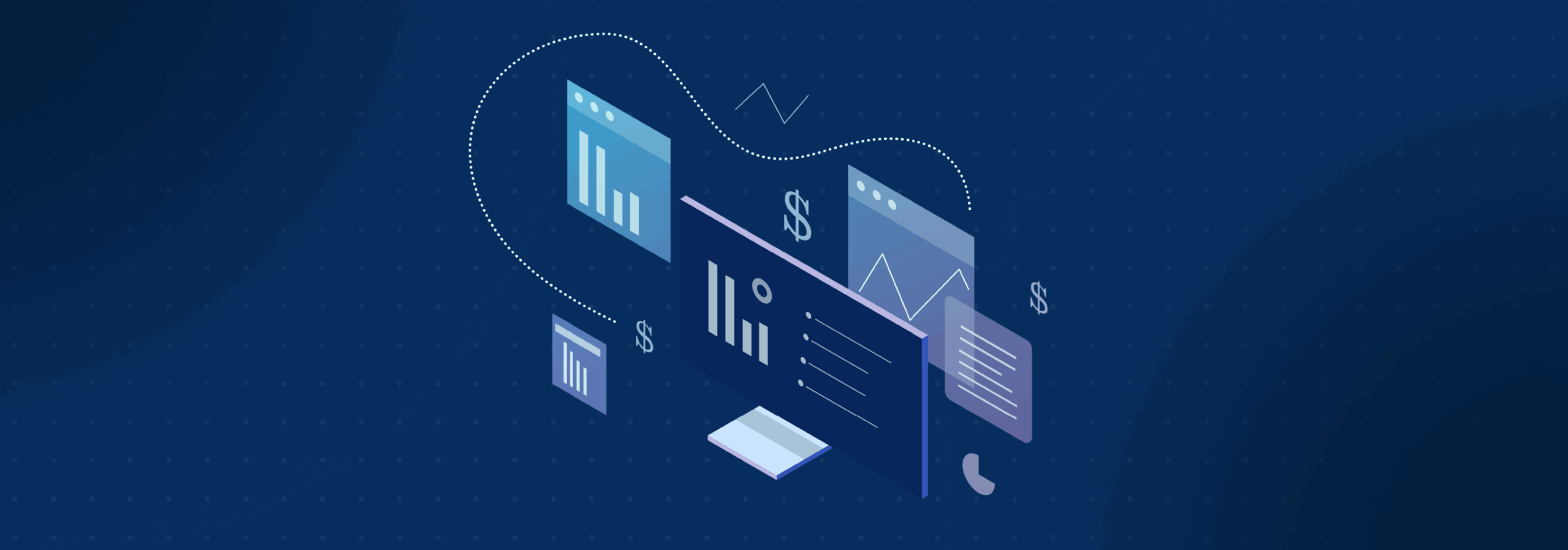Introduction
As a Chief People Officer, your greatest asset is your focus on the “people” part of your title. You’re there to guide careers, shape culture, and build an environment where employees thrive. But it’s hard to be a strategic leader when you and your team are buried under a mountain of repetitive questions and administrative tasks.
This is where the conversation about AI in HR begins. For many, it brings to mind clunky, impersonal bots. But I want to show you a different reality. The right kind of AI and HR integration doesn’t remove the human touch—it removes the friction, freeing you up to be more human, more strategic, and more impactful than ever before.
This guide will walk you through, in simple terms, what this technology is, how it works, and how it can solve some of your biggest challenges.
The Real Difference: Understanding Automation vs. AI in HR

Let’s start by clearing up the most common point of confusion. The terms “automation” and “AI” are often used interchangeably, but they are fundamentally different. Understanding this is key to appreciating the power of modern AI for HR solutions.
- Automation: Think of automation like a sophisticated sprinkler system. You program it to turn on at 6 AM, run for 20 minutes, and turn off. It’s perfect for repetitive, rule-based tasks. In HR, this is like automatically sending a “Happy Birthday” email. It follows a simple, pre-set command.
- Artificial Intelligence (AI): Now, think of AI as a smart irrigation system. It doesn’t just follow a schedule; it checks the weather forecast, measures the moisture in the soil, and decides if, when, and for how long to water each specific part of the garden. It adapts and makes decisions.
For years, HR has used automation. But the real transformation happens when you combine automation and artificial intelligence. This powerful duo creates systems that don’t just follow orders—they understand intent.
The Evolution of Chatbots in HR: Introducing Agentic AI
You’ve likely encountered basic chatbots in HR. You ask a question, and it points you to a policy document. It’s a talking FAQ page. Helpful, but limited. The game has changed, thanks in large part to the public’s familiarity with tools like ChatGPT for HR professionals. Employees now expect a more intelligent, conversational experience.
This brings us to Agentic AI.
Agentic AI isn’t an HR-specific product; it’s a category of powerful artificial intelligence designed to do things on your behalf. An AI “agent” is a system that can understand a complex goal, break it down into steps, and then take action across multiple applications to achieve it.
It’s the difference between a bot that tells an employee where to find the parental leave policy and an AI agent that executes the entire return-to-work process for them.
Real-World AI in HR Examples: From Onboarding to Offboarding

When you apply Agentic AI to human resources, you move from simple answers to complete resolutions. Here are a few practical AI in HR examples:
- Seamless Employee Onboarding: A new hire can simply say, “I’m starting Monday, what do I need to do?” The AI agent can then enroll them in benefits, provision their laptop with IT, schedule their orientation meetings, and set up their direct deposit—all from one conversation. The employee doesn’t need to move between different company systems (e.g., payroll, laptop procurement, benefits, etc.) – they only need to interact with the agent. The agent makes it seamless across the various systems on the back end.
- Instant Answers, Not Documents: An employee asks, “Can I carry over my vacation days?” Instead of getting a link to a 20-page policy, they get a direct answer based on their tenure and location: “Yes, you can carry over up to 40 hours. You currently have 16 unused hours eligible for rollover.”
- Handling Complex Life Events: An employee returning from medical leave can interact with the AI agent to update their status, adjust their payroll withholdings with finance, and restore software permissions with IT, all without ever leaving the chat window. This is AI automation that understands the interconnectedness of employee needs.
The Tangible Benefits of AI in HR for Your People and Your Business
Adopting this level of smart automation has a profound impact that you, as a people leader, care deeply about:
- Dramatically Improved Employee Satisfaction: When employees get instant, accurate help with their requests, they feel seen and supported. Eliminating the frustration of finding the right form or waiting days for an email response is a massive boost to their daily experience at work.
- Increased Productivity Across the Board: Every minute an employee spends navigating internal bureaucracy is a minute they aren’t spending on their core job. An effective AI in HR platform gives those hours back to your employees, your HR team, your IT helpdesk, and your finance department.
- Data-Driven People Strategy: AI systems provide invaluable, real-time insights into the challenges your workforce is facing. Are you seeing a spike in questions about your 401(k) plan? Perhaps it’s time for a financial wellness webinar. This data allows you to be proactive, not reactive.
What Does This Mean? AI for HR Professionals

One of the biggest fears is that AI will make HR professionals obsolete. The opposite is true. By offloading the high-volume, low-strategy tasks, AI for HR professionals elevates their roles. Your team is freed from being administrators and empowered to become the strategic, employee-facing partners you hired them to be. They can now focus on complex employee relations, career pathing, leadership development, and nurturing the culture you work so hard to build.
Choosing the Right Agentic AI for HR Solutions: Leena AI

When exploring AI for HR solutions, it’s critical to look for a platform that delivers true, cross-departmental resolutions. This is more than a simple HR chatbot. True value comes from an AI agent that can seamlessly interact with all your core enterprise systems. For instance, our platform, Leena AI, was built on this principle. It acts as a single, intelligent front door for employees, capable of resolving complex queries that span HR, IT, and Finance, proven to handle over 70% of requests without human intervention, and significantly boosts employee satisfaction.
The right partner provides a solution that understands the full context of an employee’s journey, not just a single department’s slice of it.
The era of automation and AI is here, and its greatest promise in the workplace is to give us back our time and allow us to focus on the most human parts of our jobs.
Frequently Asked Questions (FAQs) About AI and HR
1. Is AI in HR difficult to implement?
Modern, cloud-based AI for HR solutions are designed for fast and easy implementation. They integrate securely with your existing systems like Workday or SuccessFactors and can often be up and running in weeks, not months.
2. How does AI handle sensitive employee data?
Security is paramount. Enterprise-grade AI platforms are built with robust security protocols, including end-to-end encryption and compliance with global privacy standards like GDPR, to ensure all employee data is handled safely and confidentially.
3. What is the main benefit of AI automation over traditional automation?
Traditional automation handles one task well. AI automation understands context and can orchestrate a series of tasks across different systems to resolve a complex request, like a promotion or departmental transfer. It’s the difference between doing a task and solving a problem.
4. Can using AI in HR help reduce unconscious bias?
Yes, this is one of the significant benefits of AI in HR. When used in processes like resume screening, AI can be programmed to ignore demographic information and focus exclusively on skills, experience, and qualifications, leading to a more objective and equitable initial screening process.
5. How are advanced AI agents different from simple Chatbots in HR?
Simple chatbots in HR follow a script and mostly answer FAQs. An AI agent uses natural language understanding to have a real conversation. It can ask clarifying questions, remember the context, and, most importantly, take action in other software systems to resolve the employee’s issue.
6. Will my HR team need technical skills to use these AI tools?
No. The best AI for HR professionals is designed with a user-friendly interface. Your team will interact with a simple dashboard to track insights and handle exceptions, requiring no coding or technical expertise.
7. Can we customize an AI to fit our company’s unique policies?
Absolutely. A core feature of any strong AI in an HR platform is its ability to be trained on your company’s specific knowledge base, policy documents, and organizational charts to provide answers that are 100% relevant to your employees.
8. What kind of ROI can we expect from an AI for HR solution?
The return on investment comes from multiple areas: massive time savings for employees and support staff (IT, HR, Finance), increased employee productivity, higher employee retention due to better satisfaction, and reduced operational costs.
9. How do we get started with implementing AI in our HR department?
A great first step is to identify the most frequent and time-consuming queries your HR team receives. This “pain index” provides a clear starting point for an AI automation project and helps build a strong business case.
10. What is the relationship between technologies like ChatGPT for HR and enterprise AI platforms?
Think of ChatGPT as the powerful engine, and an enterprise platform like Leena AI as the custom-built, high-performance car. The enterprise solution takes that core language power and puts it inside a secure, reliable, and highly-tuned vehicle that is integrated with your company’s specific systems and data.






